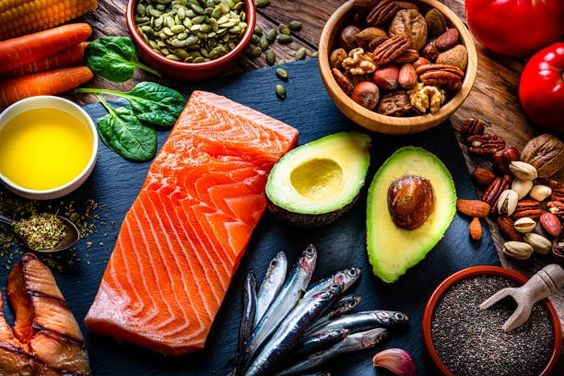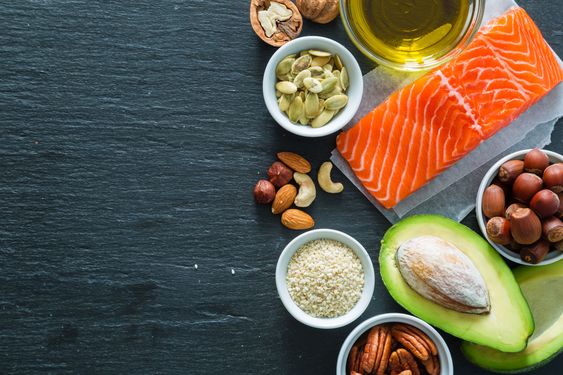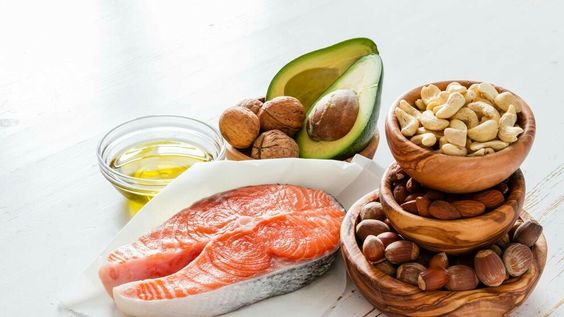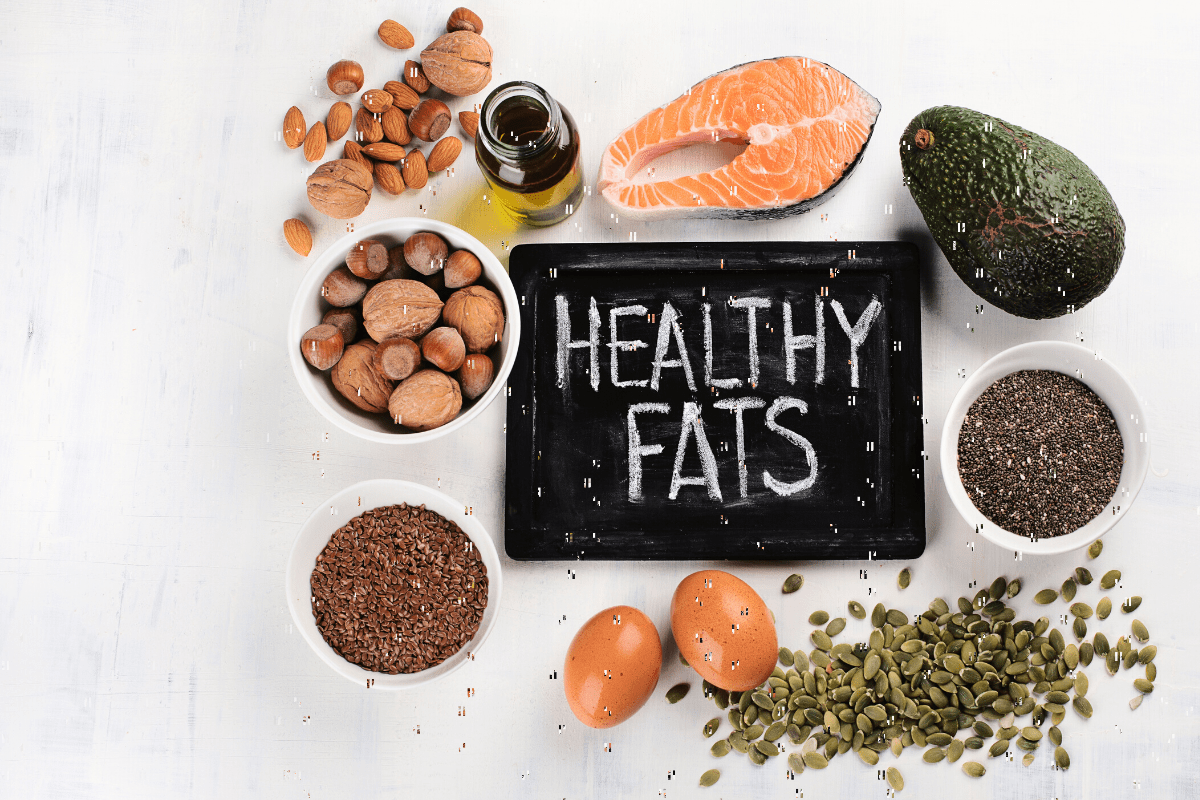Healthy fats are essential for your overall well-being. Including sources of healthy fats in your diet can improve heart health, support brain function, and keep you feeling satisfied. You might think that all fats are bad, but that’s a common misconception. Understanding the difference between healthy and unhealthy fats is key to making better nutrition choices.
Many food options are rich in healthy fats, such as avocados, nuts, seeds, and olive oil. These fats not only enhance the taste of your meals but also provide vital nutrients your body needs. When you embrace healthy fats, you are taking a positive step towards a balanced diet that promotes long-term health.
In this blog post, you’ll learn how to incorporate more healthy fats into your meals while avoiding unhealthy options. You’ll gain insights into the role of fats in your diet and discover why they are not the enemy you may have thought they were.
Key Takeaways
- Healthy fats contribute to better heart health and overall nutrition.
- Sources like avocados and olive oil are great additions to your diet.
- Recognizing and avoiding unhealthy fats can help maintain a balanced diet.
Types and Sources of Healthy Fats
Healthy fats come in different forms, and knowing these can help you make better food choices. Embracing these fats can improve your diet and overall health.
Unsaturated Fats: Monounsaturated and Polyunsaturated
Unsaturated fats are a key part of a healthy diet. They are divided into two main types: monounsaturated and polyunsaturated fats.
- Monounsaturated fats can help lower bad cholesterol levels. Foods rich in these fats include olive oil, avocados, and certain nuts like almonds.
- Polyunsaturated fats include essential fatty acids like omega-3 and omega-6. Omega-3, found in fish and flaxseeds, is known for promoting heart health.
Including both types of unsaturated fats can support your body’s nutrition and help reduce the risk of chronic diseases.
Natural Sources: Nuts, Seeds, and Oils
Nuts and seeds are excellent sources of healthy fats. They provide both monounsaturated and polyunsaturated fats and are packed with nutrients.
Here are some options:
- Nuts: Almonds, walnuts, and hazelnuts are great choices. They are easy to snack on and can be added to meals for extra crunch.
- Seeds: Flaxseeds, chia seeds, and sunflower seeds are rich in essential fatty acids. Adding them to smoothies or yogurt boosts the nutritional value.
Oils like olive oil and canola oil are good for cooking and dressings. They provide healthy fats without adding unhealthy ingredients.
Fatty Fish: Salmon, Tuna, and Mackerel
Fatty fish are among the best sources of omega-3 fatty acids. Eating these fish regularly can improve heart health and brain function.
- Salmon: This is a popular choice. It’s rich in protein and omega-3s.
- Tuna: Whether fresh or canned, tuna is accessible and easy to include in meals.
- Mackerel: An oily fish that is also high in omega-3s, mackerel is a flavorful addition to your diet.
Aim to eat fatty fish at least twice a week to benefit from their healthy fats.
The Role of Fats in a Healthy Diet
Fats play vital roles in your diet, beyond just providing energy. They help with nutrient absorption, balance cholesterol levels, and support both brain and heart health. Understanding these functions can guide you in making healthier food choices.
Energy Production and Nutrient Absorption
Fats are a key source of energy for your body. They provide more than double the calories per gram compared to carbohydrates and proteins. This concentrated energy is especially important during prolonged physical activity.
In addition, dietary fats aid in the absorption of fat-soluble vitamins like A, D, E, and K. Without proper fats, your body struggles to get these essential nutrients.
To ensure you’re getting enough healthy fats, include sources such as avocados, nuts, seeds, and olive oil in your diet. These choices can provide sustained energy while also supporting overall nutrient intake.
Balancing Cholesterol: HDL vs LDL
Cholesterol has two main types: high-density lipoprotein (HDL) and low-density lipoprotein (LDL). HDL is often called “good” cholesterol, while LDL is seen as “bad.”
Incorporating healthy fats into your diet can help manage these levels. Unsaturated fats, found in foods like fish and nuts, may increase HDL levels. This can help reduce the risk of heart disease.
Conversely, saturated and trans fats can raise LDL levels, potentially leading to health issues. Limit foods high in saturated fats, such as fatty meats and full-fat dairy products, to maintain a better balance in your cholesterol.
Supporting Brain and Heart Health
Healthy fats are crucial for maintaining brain and heart health. The brain is about 60% fat, and consuming enough omega-3 fatty acids contributes to cognitive function and may reduce the risk of neurodegenerative diseases.
For heart health, essential fatty acids can help lower inflammation and improve blood pressure. Research shows that diets rich in unsaturated fats, like the Mediterranean diet, may lower the risk of heart disease significantly.
Incorporating sources like fatty fish, walnuts, and flax seeds can enhance both your brain and heart health. Prioritize these foods to reap their numerous benefits while keeping your diet balanced.


The Impact of Fats on the Body
Fats play a significant role in your overall health. Understanding how different types of fats affect your body can help you make better dietary choices. Here are the key ways that fats influence various health aspects.
Inflammation and Cardiovascular Disease
Unsaturated fats, found in foods like olive oil and avocados, can help reduce inflammation in your body. Inflammation is linked to various health issues, including cardiovascular disease. Consuming healthy fats can lower bad cholesterol levels, leading to a decreased risk of heart disease.
On the other hand, trans fats, often found in processed foods, can increase inflammation and raise heart disease risk. Avoiding trans fats and focusing on healthy unsaturated fats can protect your cardiovascular health. Include sources like nuts and fatty fish in your diet to gain these benefits.
Blood Sugar and Diabetes Management
Healthy fats can positively impact your blood sugar levels. Unsaturated fats help improve insulin sensitivity, which is crucial for diabetes management. When you include healthy fats in your meals, they can slow down digestion, leading to steadier blood sugar levels.
Incorporating fats from nuts, seeds, and fish can support better blood sugar control. This is particularly beneficial if you are managing diabetes or looking to prevent it. Choose healthy fats over refined carbohydrates to better manage your blood sugar and overall wellness.
Healthy Weight Management
Including healthy fats in your diet may assist with weight management. Unsaturated fats can help you feel full longer. This can reduce cravings for high-calorie snacks, ultimately supporting weight loss efforts.
When you consume healthy fats, your body can efficiently use them for energy. This can help you maintain a healthy weight. Focus on incorporating sources like avocados, olive oil, and fatty fish, which can satisfy your hunger and promote overall health without leading to weight gain.
Identifying and Avoiding Unhealthy Fats
Understanding unhealthy fats is key to making better food choices. Focus on recognizing trans fats and saturated fats, and learn how to read food labels effectively to avoid these harmful ingredients.
Trans Fats and Saturated Fats
Trans fats are considered the least healthy fats. They are often found in processed foods, snacks, and baked goods. These fats raise bad cholesterol (LDL) while lowering good cholesterol (HDL), increasing your risk of heart disease and type 2 diabetes.
Saturated fats can also impact your health. They are typically found in animal products like meat and dairy, as well as some plant oils like coconut and palm oil. Although not all saturated fats are harmful, it’s best to limit your intake.
To reduce unhealthy fat consumption, focus on choosing healthier alternatives like oils rich in monounsaturated and polyunsaturated fats.
Reading Food Labels for Hidden Fats
Food labels are essential for identifying unhealthy fats. Check the ingredient list for words like “partially hydrogenated oils,” which indicate trans fats are present. Even if a product claims to have 0 grams of trans fat, it might still contain small amounts that can add up.
Look for saturated fat content in the nutrition facts. Aim for products with low saturated fat, ideally less than 5% of the daily value per serving.
Be cautious with refined carbs, which often accompany unhealthy fats in processed foods. Opt for whole foods that list healthy fats, like nuts, seeds, and avocados, to ensure better nutritional choices.
Incorporating Healthy Fats into Your Diet
Healthy fats are essential for your overall health. They help support brain function, improve heart health, and enhance nutrient absorption. Here are some ways to easily include them in your diet.
Cooking with Healthy Oils and Fats
When cooking, choose oils high in healthy fats. Olive oil is a top choice because it’s rich in monounsaturated fats. Using it for salad dressings or drizzling over vegetables adds flavor and nutrients.
Other good options include avocado oil and canola oil. You might also consider coconut oil for baking. While it’s a saturated fat, it contains medium-chain triglycerides that could offer some health benefits.
Try sautéing vegetables in these oils for a delicious and nutritious side dish. Also, remember to use fats in moderation to maintain a balanced diet.
Choosing the Right Fats at the Grocery Store
Selecting healthy fats at the grocery store can be simple. Look for whole foods such as avocados and olives, which offer good sources of fat along with fiber and vitamins.
When exploring plant oils, focus on those labeled as extra virgin or cold-pressed. These types retain more nutrients.
In contrast, limit your intake of processed oils high in omega-6 fatty acids. These oils are often found in snack foods and processed meals. Check nutrition labels to avoid excessive unhealthy fats. Dark chocolate is another pleasant option. It contains healthy fats and antioxidants but should be enjoyed in moderation.
Including Fats in a Mediterranean Diet
The Mediterranean diet is a great framework for incorporating healthy fats. It highlights foods like olive oil, nuts, and fatty fish that provide beneficial fats.
To follow this diet, start meals with a salad topped with olive oil and vinegar. Add walnuts or sunflower seeds for additional crunch and nutrition. Include fish like salmon, which is high in omega-3 fatty acids, at least twice a week.
Snack on olives or avocado slices to keep healthy fat intake steady throughout the day. Aim to consume minimal amounts of processed and saturated fats while enjoying whole food sources instead.


Frequently Asked Questions
Many people have questions about healthy fats, their benefits, and how they fit into a balanced diet. Here are some common inquiries related to the role of fats in nutrition and health.
What are the primary functions of fats in the human body?
Fats serve several critical roles in your body. They provide energy and help absorb vitamins A, D, E, and K. Fats also support cell growth and protect your organs.
How can healthy fats contribute to weight loss?
Healthy fats can keep you feeling full longer, which may help reduce overall calorie intake. When you pair them with low-calorie foods like vegetables and beans, you can maintain a balanced diet while managing your weight effectively.
What are the differences between saturated and unsaturated fats?
Saturated fats are typically solid at room temperature and are found in animal products and certain oils. Unsaturated fats, which are liquid at room temperature, can be beneficial for your heart when consumed in moderation. They help lower bad cholesterol levels.
Which foods are high in monounsaturated fats?
Foods rich in monounsaturated fats include avocados, olive oil, nuts like almonds and pecans, and some seeds. Incorporating these foods into your diet can provide essential nutrients while supporting heart health.
How do healthy fats affect overall well-being and mood?
Healthy fats can influence your mood positively. They are involved in brain health and hormone production. A balanced intake may help reduce feelings of anxiety and support cognitive function.
What is the significance of healthy fats for athletic performance?
Healthy fats provide long-lasting energy, which is important for athletes. They also support muscle repair and recovery, enhancing overall performance. Including healthy fats in your diet can benefit both endurance and strength training.





